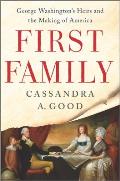Upcoming Events on Revolutionary History at the M.H.S.
Here are three different types of online events coming up from the Massachusetts Historical Society.
Tuesday, 6 February, 5:00 to 6:15 P.M.
Pauline Maier Early American History Seminar Series
“The Social World of Revolutionary New England”
Panel discussion with:
- Nicole Breault, University of Texas, El Paso
- Christopher Walton, Southern Methodist University
- Mark Peterson, Yale University
Christopher Walton’s work examines how Congregational clergy in the Connecticut Valley ministered to their communities through suffering during the American Revolution. As the religious community dealt with sickness and death locally, it learned to respond piously to loss at the battlefront. Through suffering, religion became personal as individuals took solace in religious truth and cultivated piety.
Peterson, author of The City-State of Boston, will comment on Breault and Walton’s papers (which are available to seminar subscribers).
Register for “The Social World of Revolutionary New England” here.
Thursday, 15 February, 6:00 to 7:00 P.M.
“First Family: George Washington’s Heirs & the Making of America”
Cassandra Good, Marymount University,
in conversation with Sara Georgini, M.H.S.
While George and Martha Washington never had children of their own, they raised numerous children together. In First Family, we see Washington as a father figure, and also meet the children he helped to raise. The children of Martha Washington’s son by her first marriage—Eliza, Patty, Nelly and Wash Custis—were born into life in the public eye. Raised in the country’s first “first family,” they remained well-known not only as Washington’s family, but also as keepers of his legacy throughout their lives.
As the country grapples with concerns about political dynasties and the public role of presidential families, the saga of Washington’s family offers a human story of historical precedent.
Register for “First Family: George Washington’s Heirs & the Making of America” here. This is a free public event.
Monday and Tuesday, 19–20 February, 9:00 A.M. to 2:00 P.M.
“Perspectives on the Boston Massacre & the Legacy of Crispus Attucks”
Teacher Workshop
This two-day workshop is offered for Grade 3-12 educators with a focus on Grade 5, covering content relevant to Grade 5 Investigating History, Early U.S., 19th Century, and African American History.
On a cold night in March 1770, simmering conflict broke out into a riot between colonial Bostonians and British soldiers. Competing witness accounts from across all walks of Boston life made it difficult to know exactly what happened, but the night ended with the death of five colonists including Crispus Attucks, a Black and Indigenous sailor, and became a flashpoint in the conflict between colonists and British rule.
Eighty-five years later, Black historian and community leader William Cooper Nell brought Crispus Attucks back into the public’s consciousness, connecting Black participation in the Revolutionary Era to 19th-century abolitionists’ calls for emancipation and equal civil rights for Black Americans.
Using primary sources and resources from the MHS’ History Source, educators will:
- Explore conflicting witness testimonies and multiple perspectives from a diverse array of Bostonians.
- Investigate ways in which people of color have been both present for and critical actors in turning points in American history.
- Discuss how and why public memory of the Boston Massacre has changed over time–and how point of view influences our interpretation of the past.
- Model strategies for analyzing primary sources in the classroom.


No comments:
Post a Comment